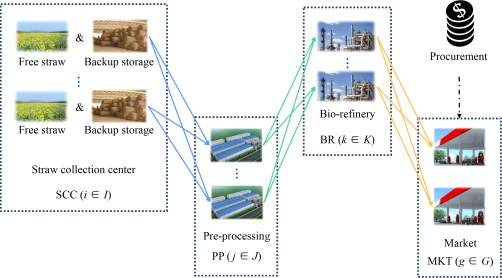
Researchers at Tianjin University have introduced an innovative optimization design method aimed at enhancing the resilience of biofuel supply chains. Their study, titled “Optimization Design Method for Biofuel Resilient Supply Chain Considering Node Disruption Impacts in a Two-Stage Stochastic Programming Framework,” was published in Frontiers of Chemical Science & Engineering, Volume 19, Issue 6. This research responds to the growing complexities of biofuel supply chains as economic globalization accelerates, exposing businesses to increased uncertainties and potential disruptions.
Faced with these challenges, companies are prioritizing the development of supply chains that can withstand disruptions while ensuring both security and competitiveness. Traditional supply chain design approaches have struggled to effectively quantify and evaluate disruption risks, leaving a significant gap in risk mitigation strategies. To bridge this gap, the researchers propose an advanced Node Disruption Impact Index. This index has adjustable parameters that reflect cost changes in the supply chain due to disruptions at various nodes, providing a robust framework for assessing the impact of different risk levels.
Innovative Framework Addresses Disruption Risks
The adjustable parameters of the Node Disruption Impact Index allow supply chain enterprises to customize their approach, balancing economic benefits with resilience. By incorporating this index into their model, the researchers developed a two-stage stochastic programming optimization framework specifically designed for biofuel supply chains. This framework addresses the uncertainties associated with node disruptions and includes mechanisms to manage potential high disruption risks.
In practical application, the team tested their model on a biofuel supply chain case in Guangdong Province. The results revealed that when high-risk nodes are disrupted, the proposed optimization model significantly outperformed traditional models in terms of cost efficiency and market delivery rates. These findings underscore the method’s effectiveness in designing resilient supply chains capable of adapting to disruptions.
The implications of this research are substantial for businesses operating in the biofuel sector, as it equips them with a more reliable means of managing disruption risks. This enhanced capability is vital in an era where supply chain resilience is paramount for maintaining competitive advantage.
For more detailed insights, the full study is accessible at: https://journal.hep.com.cn/fcse/EN/10.1007/s11705-025-2548-z.







